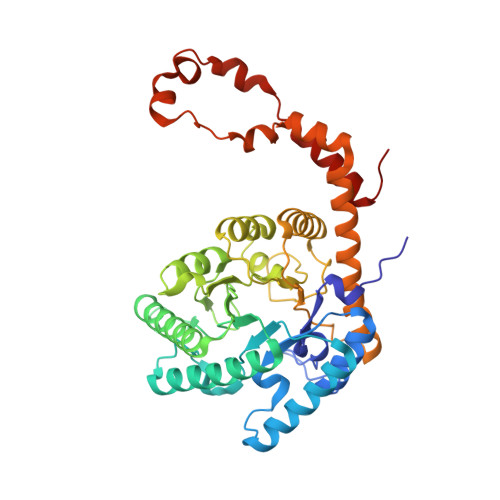Locating active-site hydrogen atoms in D-xylose isomerase: Time-of-flight neutron diffraction.
Katz, A.K., Li, X., Carrell, H.L., Hanson, B.L., Langan, P., Coates, L., Schoenborn, B.P., Glusker, J.P., Bunick, G.J.(2006) Proc Natl Acad Sci U S A 103: 8342-8347
- PubMed: 16707576
- DOI: https://doi.org/10.1073/pnas.0602598103
- Primary Citation of Related Structures:
2GLK, 2GUB, 2GVE - PubMed Abstract:
Time-of-flight neutron diffraction has been used to locate hydrogen atoms that define the ionization states of amino acids in crystals of D-xylose isomerase. This enzyme, from Streptomyces rubiginosus, is one of the largest enzymes studied to date at high resolution (1.8 A) by this method. We have determined the position and orientation of a metal ion-bound water molecule that is located in the active site of the enzyme; this water has been thought to be involved in the isomerization step in which D-xylose is converted to D-xylulose or D-glucose to D-fructose. It is shown to be water (rather than a hydroxyl group) under the conditions of measurement (pH 8.0). Our analyses also reveal that one lysine probably has an -NH(2)-terminal group (rather than NH(3)(+)). The ionization state of each histidine residue also was determined. High-resolution x-ray studies (at 0.94 A) indicate disorder in some side chains when a truncated substrate is bound and suggest how some side chains might move during catalysis. This combination of time-of-flight neutron diffraction and x-ray diffraction can contribute greatly to the elucidation of enzyme mechanisms.
Organizational Affiliation:
Fox Chase Cancer Center, 333 Cottman Avenue, Philadelphia, PA 19111, USA.















